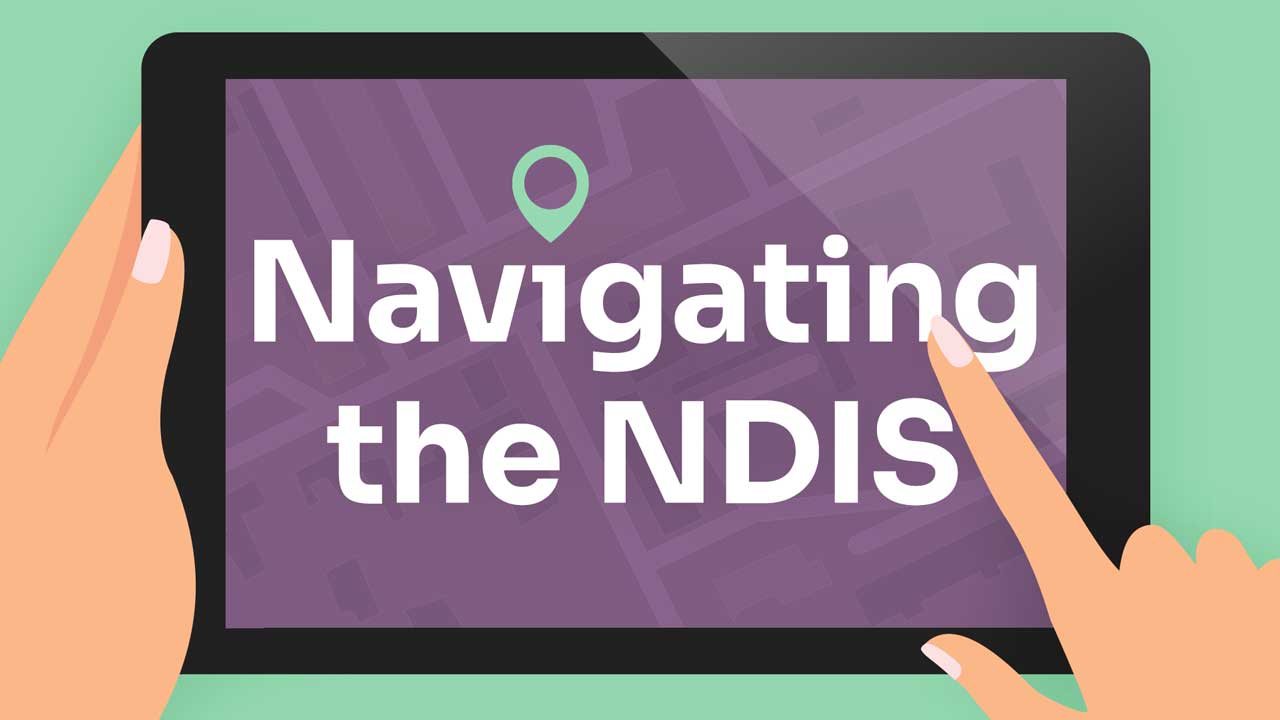This article is intended to help healthcare professionals and people living with disabilities understand, access, and navigate the National Disability Insurance Scheme (NDIS).
The following topics will be covered:
- What is the NDIS?
- Why is the NDIS Essential?
- What is the National Disability Insurance Agency?
- What is Meant by 'Insurance Scheme'?
- What is the NDIS Commission?
- Where is the NDIS Available?
- What is Funded by the NDIS?
- Who is Eligible for the NDIS?
- How to Apply for the NDIS
- Where to Go for Further Help Applying
- How to Create an NDIS Plan
- Additional NDIS Responsibilities for Healthcare Professionals
- Providing Evidence of Disability
- How to Manage NDIS Funding.
What is the NDIS?
The National Disability Insurance Scheme (NDIS) is a government-led initiative intended to support Australians who are living with intellectual, physical, sensory, cognitive, and/or psychosocial disability (NDIA 2024a).
Supports offered by the NDIS can range from assistance with daily personal activities to mobility aids and home modifications to therapeutic supports (NDIA 2021a).
The NDIS is designed to help eliminate barriers to living a fulfilling and productive life for around 500,000 Australians (under the age of 65) living with permanent and significant disability, providing them with the necessary supports required (NDIA 2024a).
This is achieved by connecting people to services in their communities, such as doctors, sporting clubs, libraries, and schools, and by supplying information about what support is provided by each state and territory government (NDIA 2024a).
Note: The NDIS is not to be confused as a replacement for the Disability Support Pension - this pension still provides income support through Centrelink to people aged 16 to 65 who are unable to work as a result of their disability (NDIA 2020a).
However, the NDIS does offer additional funding to meet the particular needs of people with disabilities, such as buying a wheelchair or having assistance at home (Laragy 2016).

Why is the NDIS Essential?
The NDIS was created in response to a 2011 Productivity Commission report on Disability and Care, which found that disability services, as they existed in 2011, were:
- Underfunded
- Unfair
- Fragmented
- Inefficient.
(NDIA 2023a; Productivity Commission 2011)
In response to these findings, the Commission suggested a system of flexible individual funding packages that could be accessed to purchase disability supports (Laragy 2016) - hence, the implementation of the nationwide NDIS service.
What is the National Disability Insurance Agency?
The National Disability Insurance Agency (NDIA) is the independent government organisation that administers the NDIS.
The NDIA decides whether someone is eligible to become an NDIS participant and, if so, how much funding they are entitled to. This is based on the National Disability Insurance Scheme Act 2013 (NDIS Act), which details the supports and services the NDIS will fund (NDIA 2024b).
What is Meant by ‘Insurance Scheme’?
The term ‘insurance scheme’ reflects the intention of the NDIS: to take a ‘lifetime approach’, providing support where needed and investing in people with disability early on to improve their outcomes later in life (NDIA 2023b).
What is the NDIS Commission?
The NDIS Quality and Safeguards Commission is an independent agency established to regulate the safety and quality of NDIS supports and services. The Commission aims to ensure that NDIS participants receive supports that afford them choice, control, and dignity (NDIS Commission 2023).
Where is the NDIS Available?
The NDIS is available in all Australian states and territories.
What is Funded by the NDIS?
There are 15 types of supports and services funded by the NDIS. These include:
- Assistance with daily life
- Transport
- Consumables
- Assistance with social and community participation
- Assistive technology
- Home modifications
- Coordination of supports
- Improved living arrangements
- Increased social and community participation
- Finding and keeping a job
- Improved relationships
- Improved health and wellbeing
- Improved learning
- Improved life choices
- Improved daily living.
(NDIA 2021b)
Supports and services that cannot be funded by the NDIS include those that:
- Are unrelated to the participant’s disability
- Are the same as other supports already being delivered under different funding through the NDIS
- Include day-to-day living costs unrelated to the participant’s disability support needs
- Carry a risk of harm to the participant or others
- Can be more effectively delivered by other systems e.g. health or education.
(NDIA 2021b)

Who is Eligible for the NDIS?
To be eligible for NDIS funding, an individual must:
- Be between the ages of 9 and 65
- Be an Australian citizen, permanent resident or Protected Special Category Visa holder
- Live in Australia
- Have an intellectual, cognitive, neurological, sensory, physical or psychosocial disability caused by permanent impairment (including ‘episodic and fluctuating’ conditions)
- Require supports or early interventions that the NDIS is able to provide.
(NDIA 2023c)
For more information, see the NDIS Eligibility Checklist.
Note: Children aged under six with developmental delay and children aged under nine with disability can access NDIS supports through a separate pathway known as the early childhood approach (NDIA 2024c).
Applying for the NDIS
Those who are eligible for NDIS funding (or their carers) must apply by:
- Making an access request, either by:
- Contacting their local area coordination or early childhood partner
- Making a verbal access request over the phone by calling 1800 800 110 and providing the necessary information
- Visiting an NDIS office
- Completing and submitting an Access Request Form.
- Providing objective evidence of their impairment and its functional impact (e.g. from a relevant treating professional).
(NDIA 2024d)
Where to Go for Further Help Applying
The NDIS has partnerships with local community organisations known as local area coordinators (NDIS 2023d).
Local area coordinators can assist with:
- Finding relevant information (e.g. online supports and services)
- Understanding and accessing the NDIS
- Developing an NDIS support plan
- Implementing an NDIS support plan
- Reviewing an NDIS support plan
- Linking potential participants to the NDIS and supports in their local area.
(NDIA 2023d)
Note that local area coordinators cannot create or approve an NDIS plan (NDIA 2023d).
Creating an NDIS Plan
For healthcare professionals: you may need to assist a patient with creating an NDIS plan. A plan is intended to aid the NDIA in gaining an understanding of a participant’s support needs. The planning process can also involve family, carers, and significant others (Summer Foundation 202e).
For participants: Your NDIS plan should outline your short-term and long-term goals - i.e. milestones you want to achieve with support from the NDIS as well as other supports and services (NDIA 2022).
Examples of goals include becoming more independent, getting a job, learning new skills, enrolling in an educational course, engaging with their community or improving relationships and making friends (NDIA 2022).
It’s ideal that the planning process is led by the participant (to the extent they want to) and from there, an individualised plan will be devised.

Additional NDIS Responsibilities for Healthcare Professionals
Healthcare professionals are able to carry out the following tasks:
- Help patients understand how the NDIS works
- Refer patients to information about who can access the NDIS
- Provide supporting evidence as part of an Access Request Form
- Document that the patient has or is likely to have a permanent disability
- Provide copies of reports or assessments relevant to the diagnosis/condition to describe the extent of the functional impact of the disability.
(NDIA 2020b)
For more information, please see the NDIS’ information for GPs and healthcare professionals.
Providing Evidence of Disability to Support a Patient
The evidence you supply to support an NDIS Access Request must relate to the patient’s primary disability that has the greatest impact on their life. Any additional evidence relating to other disabilities that may affect your patient and the impact they have on their functional capacity will also be accepted (NDIA 2020b).
You will need to provide evidence the patient has or is likely to have a permanent disability, including information about:
- The type of disability
- The date their disability was diagnosed (if available)
- How long the disability will last
- Available treatments (i.e. medications, therapies or surgeries).
(NDIA 2024e)
You will also need to describe the impact of the disability on the patient’s day-to-day function in each of the following areas:
- Mobility and motor function
- Communication
- Social interaction
- Learning
- Self-care
- Ability to self-manage.
(NDIA 2024e)
How to Manage NDIS Funding

There are three ways in which NDIS participants can choose to manage their funding:
- Self-management: The participant negotiates the supports specified in their confirmed plan, including employing support workers.
- Plan-managed funding: The participant engages a provider (referred to as a plan manager) to manage their funding.
- NDIA-managed funding: The NDIA manages the funding and pays providers on the participant’s behalf.
(NDIA 2024f)
The participant may also choose to use a combination of the above options (NDIA 2024f).
In 2016, it was found that only 7% of participants chose to self-manage their funds, while 35% combined self-management and agency management and 58% were fully agency-managed (Laragy 2016).
Conclusion
As a healthcare professional, your compassion, professionalism, and guidance can greatly help to facilitate a patient’s NDIS journey.
As a prospective participant of the scheme, remember that you do not need to navigate the NDIS on your own; there are individuals, communities, agencies, and resources readily available to you.
It does not need to be thought of as a daunting process.
Topics
Further your knowledge
References
- Laragy, C 2016, ‘Understanding the NDIS: How Does the Scheme Work and am I Eligible for Funding?’, The Conversation, 6 July, viewed 22 July 2024, https://theconversation.com
- National Disability Insurance Agency 2023c, Am I Eligible, Australian Government, viewed 22 July 2024, https://www.ndis.gov.au
- National Disability Insurance Agency 2024d, Applying to Access the NDIS FAQ, Australian Government, viewed 22 July 2024, https://www.ndis.gov.au
- National Disability Insurance Agency 2020b, A GP & Health Professional’s Guide to the NDIS, Australian Government, viewed 22 July 2024, https://www.ndis.gov.au
- National Disability Insurance Agency 2024c, The Early Childhood Approach for Children Younger Than 9, Australian Government, viewed 22 July 2024, https://www.ndis.gov.au
- National Disability Insurance Agency 2023a, History of the NDIS, Australian Government, viewed 22 July 2024, https://www.ndis.gov.au
- National Disability Insurance Agency 2023d, Local Area Coordination Partners, Australian Government, viewed 22 July 2024, https://www.ndis.gov.au
- National Disability Insurance Agency 2024e, Providing Evidence of Your Disability, Australian Government, viewed 22 July 2024, https://www.ndis.gov.au
- National Disability Insurance Agency 2022, Setting Goals, Australian Government, viewed 22 July 2024, https://www.ndis.gov.au
- National Disability Insurance Agency 2021b, Supports and Services Funded by the NDIS, Australian Government, viewed 22 July 2024, https://www.ndis.gov.au
- National Disability Insurance Agency 2020a, Supports FAQ, Australian Government, viewed 22 July 2024, https://www.ndis.gov.au
- National Disability Insurance Agency 2021a, Supports Funded by the NDIS, Australian Government, viewed 22 July 2024, https://www.ndis.gov.au
- National Disability Insurance Agency 2023b, Understanding the NDIS, Australian Government, viewed 22 July 2024, https://www.ndis.gov.au
- National Disability Insurance Agency 2024f, Ways to Manage Your Funding, Australian Government, viewed 22 July 2024, https://www.ndis.gov.au
- National Disability Insurance Agency 2024a, What is the NDIS?, Australian Government, viewed 22 July 2024, https://www.ndis.gov.au
- National Disability Insurance Agency 2024b, Who's Delivering the NDIS, Australian Government, viewed 22 July 2024, https://www.ndis.gov.au
- NDIS Quality and Safeguards Commission 2023, About the Commission, Australian Government, viewed 22 July 2024, https://www.ndiscommission.gov.au
- Productivity Commission 2011, Disability Care and Support, Australian Government, viewed 22 July 2024, https://www.pc.gov.au
- Summer Foundation 2023, How to Get Started With the NDIS, Summer Foundation, viewed 22 July 2024, https://www.summerfoundation.org.au
 New
New 

